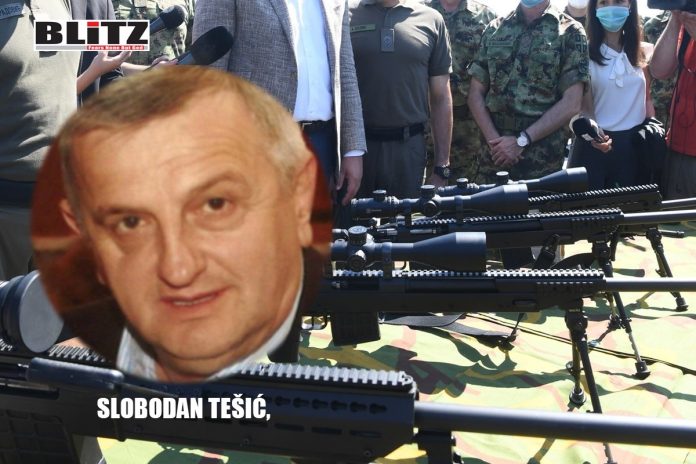Despite facing multiple rounds of sanctions and international scrutiny, Slobodan Tešić, the notorious arms dealer, continues to wield considerable influence in Serbia’s weapons trade. Recent revelations suggest that Tešić has extended his reach by reportedly taking control of a company previously associated with his main competitor, underscoring the clandestine methods he employs to maintain his grip on the arms industry.
Tešić’s career has been marked by allegations of selling arms to warlords, engaging in corrupt practices to secure contracts, and enticing clients with extravagant perks like luxury vacations. Yet, despite being blacklisted and facing legal restrictions, the 65-year-old remains a central figure in Serbia’s arms trade, which predominantly deals in small arms and ammunition.
The implications of Slobodan Tešić’s continued dominance extend globally, as Serbia’s lax enforcement of arms export regulations has allowed its weapons to end up in conflict zones and in the hands of human rights violators. Despite being obligated by international treaties to prevent arms diversion, Serbia has repeatedly failed to do so, with its weapons surfacing in various conflict zones, including Yemen, Syria, and Myanmar.
Tešić’s rise to prominence traces back to the turbulent years of the Balkan conflicts in the 1990s, where he honed his skills in navigating the murky world of arms procurement. His resilience in the face of legal challenges and sanctions reflects his adaptability and willingness to push boundaries to secure deals.
Slobodan Tešić’s influence in Serbia’s arms industry is purportedly bolstered by his close ties to the ruling Serbian Progressive Party (SNS), led by President Aleksandar Vučić. Critics allege that Tešić’s ascent would not have been possible without the tacit support of the government, which is accused of exerting authoritarian control over the country.
Despite being targeted by sanctions from the United States and the United Kingdom, Tešić has managed to circumvent restrictions through a network of proxy companies and strategic alliances. Recent evidence suggests that he may have orchestrated the acquisition of a competitor’s firm, further consolidating his position in the arms trade.
However, Slobodan Tešić maintains a veil of secrecy around his activities, refraining from public engagements and keeping a low profile in Belgrade. His name is conspicuously absent from current arms deals, as he and his associates remain subject to sanctions that prohibit them from conducting business with major players in the global arms market.
Tešić’s response to allegations of corruption and illicit dealings has been dismissive, attributing sanctions to unfounded rumors and external pressures. He insists on his compliance with sanctions and portrays himself as a facilitator who opens doors for business opportunities rather than actively engaging in operational activities.
Despite the controversies surrounding Slobodan Tešić, his close ties to the Serbian government and his unwavering influence in the arms trade indicate that he remains a formidable force in Serbia’s political and economic landscape. As international scrutiny intensifies and calls for accountability grow louder, the shadowy dealings of figures like Tešić underscore the challenges of regulating the global arms trade.




